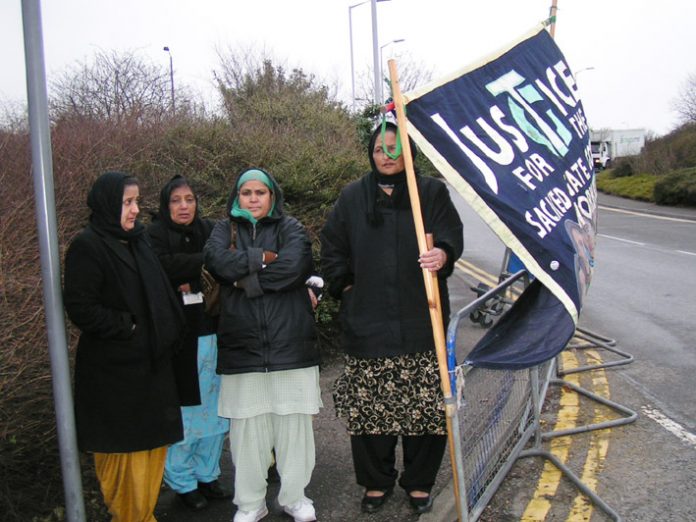ABOUT 1.5 million local council workers are to strike on March 28 to defend their local government pension scheme. It is being described as the biggest industrial action since the 1926 General Strike.
Eight trade unions published the results of ballots for strike action yesterday. UNISON, the T&G and GMB recorded overwhelming votes, with 80 per cent for strike action in UNISON and more than 85 per cent of T&G members voting to strike.
UNISON General Secretary Dave Prentis said the government had ‘destroyed the retirement plans of tens of thousands of public sector workers’. He said: ‘Civil servants, teachers, police, firefighters and the NHS have all been given protection for existing members over changes to their pension scheme. . . Our members deserve the pensions they have already paid for.’
Tony Woodley, T&G General Secretary said: ‘This strike is about low paid council workers, the majority of them women, defending themselves and claiming what is rightfully theirs.’
As Prentis said, Blair’s government is certainly the architect of this attack on local council workers’ pensions. It dictates the intransigent stand taken by the Local Government Association on pensions.
In fact, the Labour government is attacking all pensions, not just public sector workers’ pensions, but private schemes and the universal state pension.
For example, yesterday the government rejected calls from Ann Abraham, the Parliamentary Ombudsman, to compensate those who had suffered as a result of ‘inaccurate, incomplete, unclear and inconsistent’ advice provided by the Department of Work and Pensions (DWP) about company pension schemes between 1994 and 2005.
Work and Pensions Secretary, John Hutton, attacked the Ombudsman’s report and Pension Reform Minister, Stephen Timms, saying that ‘it could not be the responsibility of taxpayers to bail out failed corporate pension schemes’, despite the government encouraging workers to pay into these schemes.
The Pensions Action Group (PAG) said about 400 company pensions schemes had gone bust and that workers had lost pensions worth £5bn (£100m-£150m over 40 years). A PAG spokeswoman said it was clear that ‘these individuals have been dreadfully wronged by our government’.
Meanwhile, hundreds of thousands of workers are suffering as a result of the employers scrapping company, final-salary, pension schemes.
In addition, the Blair government is preparing to implement changes to the state pension based on Lord Adair Turner’s Pensions Commission report, published last November.
This proposed that the state pension should not be paid to both women and men until the age of 68 by 2050 and that this should be supplemented by a second pension scheme, which workers, employers and the government will pay into automatically.
So women will have to work eight years longer and men three years longer before they qualify for the universal state pension.
The pensions policy demanded by the banks and major corporations, proposed by Turner, the former head of the employers’ organisation, the CBI, and implemented by Blair and Hutton, is that you must work into old age and pay for your pension, in order that those who survive will receive a pittance.
This is why the fight by council workers to defend their local-government pension scheme is a struggle on behalf of all public sector workers and for the whole working class.
Last autumn, workers in the civil service, teachers and NHS staff were saddled with the two-tier sell-out deal, that most of them opposed, but which was agreed by Prentis, Woodley and company. They want to return to their previous pension provisions.
So the March 28 strike must become a springboard for a general strike by the whole trade union movement, spearheaded by the public sector unions, to bring down the Blair government.
This will create the conditions for the formation of a workers’ government that will implement socialist policies, including the right to a universal state pension, linked to average earnings, amounting to a substantial proportion of those earnings.
Such a struggle demands the building of a new revolutionary leadership in the unions and the removal of union leaders who collaborate with the Labour government and agreed to the two-tier pensions deal.

